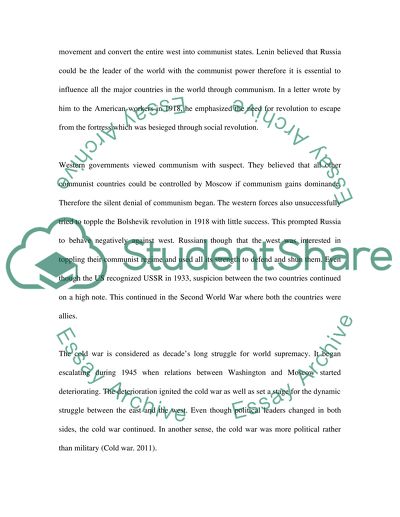Cite this document
(“Why did the Cold War not escalate into full-scale war between the USA Essay”, n.d.)
Retrieved from https://studentshare.org/environmental-studies/1412067-world-politics-since
Retrieved from https://studentshare.org/environmental-studies/1412067-world-politics-since
(Why Did the Cold War Not Escalate into Full-Scale War Between the USA Essay)
https://studentshare.org/environmental-studies/1412067-world-politics-since.
https://studentshare.org/environmental-studies/1412067-world-politics-since.
“Why Did the Cold War Not Escalate into Full-Scale War Between the USA Essay”, n.d. https://studentshare.org/environmental-studies/1412067-world-politics-since.


